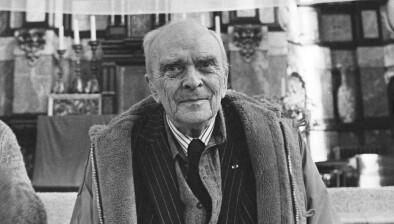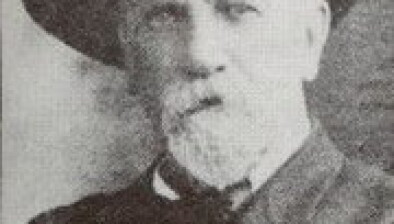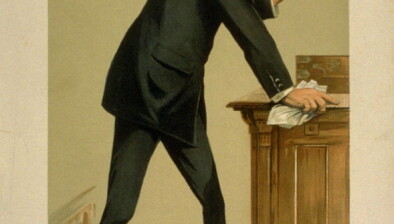Irish Legal Heritage: Norris v Ireland

Pictured: Mural by Joe Caslin
in Dublin as part of the
Yes Equality campaign
(Photo by Rob Hurson, CC BY-SA 2.0)
On 22 April 1983, Senator David Norris lost an appeal to the Supreme Court. He sought a declaration that that sections 61 and 62 of the Offences Against the Person Act 1861, and section 11 of the Criminal Law Amendment Act 1885, were inconsistent with the Constitution.
Under Article 50 of the Constitution, laws inconsistent with the Constitution were no longer in force – therefore the argument was that the aforementioned laws had not been in force since the enactment of the Constitution.
Sections 61 and 62 of the Offences Against the Person Act 1861 criminalised “buggery” and attempted buggery respectively, the former providing a maximum penalty of life imprisonment and the latter providing a maximum penalty of two years’ imprisonment. Section 11 of the Criminal Law Amendment Act 1885 stated:
“Any male person who, in public or private, commits, or is a party to the commission of, or procures or attempts to procure the commission by any male person of, any act of gross indecency with another male person, shall be guilty of a misdemeanor, and being convicted thereof shall be liable at the discretion of the court to be imprisoned for any term not exceeding two years, with or without hard labour”
Norris’s constitutional challenge had begun in 1977, when, as one of the founding members of the Campaign for Homosexual Law Reform, he initiated the High Court proceedings which would eventually bring him to the European Court of Human Rights.
The Campaign for Homosexual Law Reform had been established with the specific aim of challenging the laws which made homosexual acts a crime in Ireland. In his autobiography, Norris explains that it was in 1966, in the aftermath of being hospitalised following an anxiety attack and arrhythmia which was blamed on the fact that he was homosexual, that he realised he had locus standi to bring a case.
A psychiatrist had advised Norris, for the preservation of his health and “to forestall a possible nervous collapse”, to leave Ireland and live in the south of France, where homosexuality was “better understood”. He said that the “injustice of the advice” angered him, but later proved useful in allowing him to “show that the legislation had a direct quantifiable negative impact” on him in that the effect of the legislation on his psychological well-being was such that he had been professionally advised to leave his own country (David Norris, A Kick Against The Pricks: The Autobiography (Random House 2012)).
When presenting the case before the High Court in 1980, the opening words from Norris’s senior counsel, Garret Cooney, were: “My client is a congenital, irreversible homosexual.” The High Court case ended with what Norris described as a “manifesto of gay rights”, quickly followed by a shocking defeat on the basis of the Christian and democratic nature of the Irish Constitution. Landed with the state’s £75,000 costs, Norris immediately lodged an appeal to the Supreme Court.
In the five-judge Supreme Court, Norris’s appeal was defeated 3-2. The leading judgment was given by Chief Justice O’Higgins, in which he said:
“From the earliest days, organised religion, regarded homosexual conduct, such as sodomy and associated acts with a deep revulsion as being contrary to the order of nature, a perversion of the biological functions of the sexual organs and an affront both to society and to Gods… Today, as appears from the evidence given in this case, this strict view is beginning to be questioned by individual Christian theologians but, nevertheless, as the learned trial judge said in his judgment, it remains, the teaching of all Christian Churches that homosexual acts are wrong.”
Dismissing the appeal, Chief Justice O’Higgins said that Norris had no right of privacy which could prevail against the impugned criminal sanctions, and that “on the grounds of the Christian nature of our State and on the grounds that the deliberate practice of homosexuality is morally wrong, that it is damaging to the health both of individuals and the public and, finally, that it is potentially harmful to the institution of marriage” he could find no inconsistency with the Constitution.
Norris appealed to the European Court of Human Rights, where he recalls his time in court beside the solicitor John Jay who sometimes drew “…caricatures of the principals and writing slightly naughty limericks about them. These he would pass to me with a very solemn expression as if they were important legal minutiae. I played the game by maintaining a serious demeanour too, which added to his amusement”. This time, the appeal was successful, with the ECHR finding that the laws breached Article 8 of the European Convention on Human rights. In 1993, the Criminal Law (Sexual Offences) Act was introduced – finally abolishing the laws which made homosexuality a crime in Ireland.
Seosamh Gráinséir










